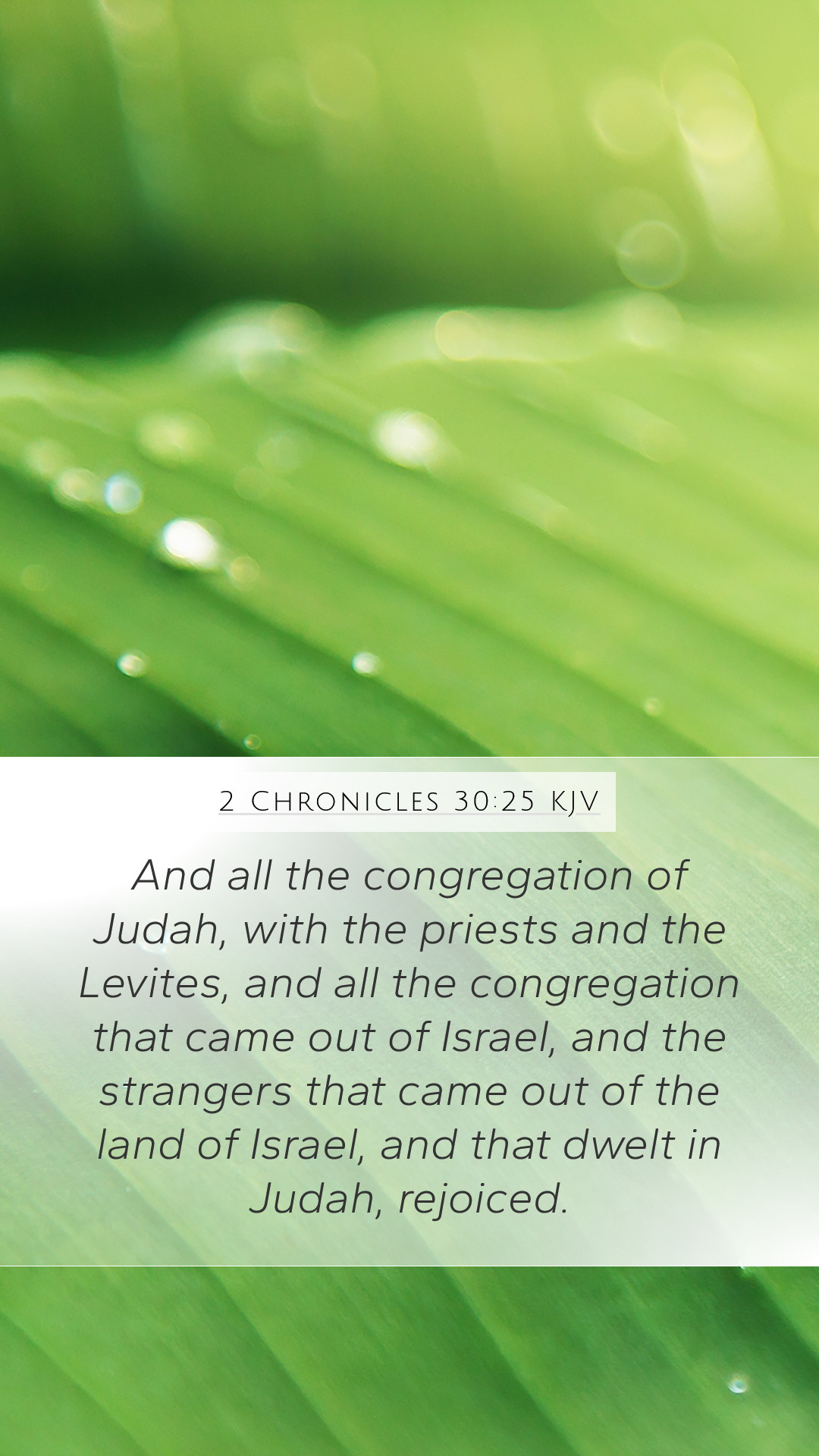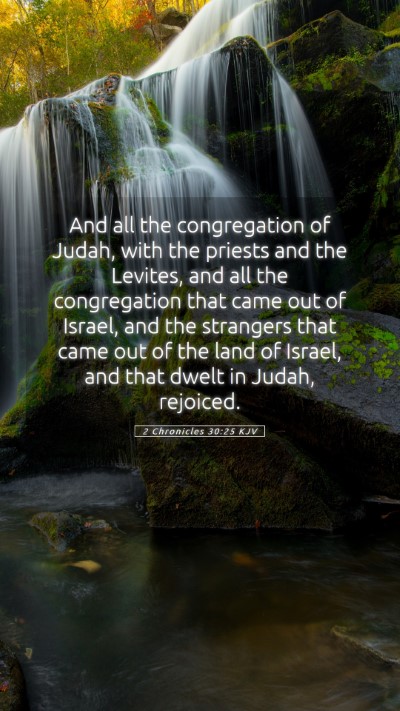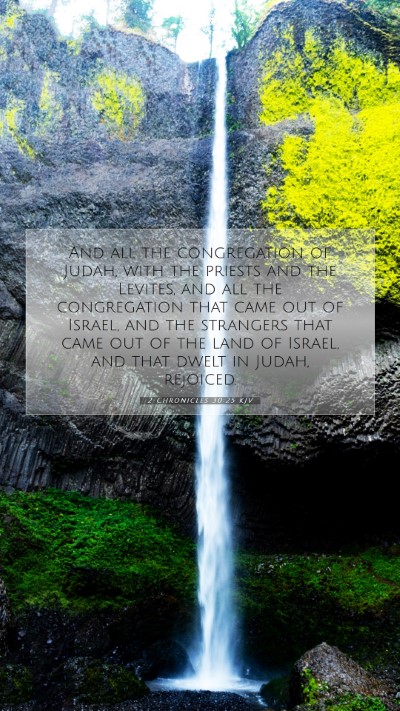Understanding 2 Chronicles 30:25
Verse: "And the whole assembly of Judah with the priests and the Levites, and all the congregation that came out of Israel, stood up and blessed the Lord, the God of their fathers, and bowed down their heads and worshiped the Lord with their faces to the ground."
General Overview
This verse captures a pivotal moment in the history of the people of Judah, showcasing their collective response to God's mercy and the leadership of King Hezekiah. The context of this verse is essential to grasp the magnitude of the assembly's action—during the Passover festival, they are called to return to proper worship and repentance.
Key Themes
- Unity in Worship: The assembly reflects the communal nature of worship, where all factions of the community, including priests and laypeople, join together.
- Repentance and Restoration: This event signifies a turning back to God after a period of neglect and sin, embodying the broader themes of repentance and restoration present throughout Scripture.
- Adoration of God: The act of blessing and worshiping God demonstrates a humble acknowledgment of His greatness and mercy.
- Symbolism of Kneeling: Bowing down with faces to the ground signifies deep reverence and submission before God.
Bible Verse Commentary
This verse can be understood more deeply through the insights provided by various Bible commentaries.
Insights from Matthew Henry
Matthew Henry emphasizes the significance of communal worship and the restoration of true religious practices. He notes that the gathering reflects the collective desire of the people to return to God after a long period of spiritual decline. The importance of heartfelt worship is highlighted as essential for drawing closer to God.
Insights from Albert Barnes
Albert Barnes focuses on the context of the revival under Hezekiah. He comments on the importance of the priests leading the worship and how their example was crucial for the assembly's response. It illustrates a model of leading by example in faith and worship—a reminder for contemporary believers to inspire one another in their faith journeys.
Insights from Adam Clarke
Adam Clarke expounds on the cultural and historical significance of the Passover celebration, noting that this moment acts as a unifying force for the Israelites. He points out that the blessings and worship were not merely ritualistic; they were heartfelt expressions of gratitude and reverence for God’s protection and providence.
Application of the Verse
2 Chronicles 30:25 serves as a powerful reminder for modern believers regarding the importance of communal worship, humility, and reverence for God. It urges Christians to gather together in worship, recognizing God’s grace and mercy in their lives. The act of kneeling emphasizes that worship is not just a formality but should come from a genuine place of respect and devotion.
Practical Takeaway
For those seeking to incorporate the lesson of this verse into daily life:
- Participate in Community Worship: Engage in Bible study groups or church services where communal worship is vital.
- Practice Humility: Approach worship with a spirit of humility and reverence, just as the assembly demonstrated.
- Lead by Example: Inspire others in your faith community to engage in proper worship and seek a deeper relationship with God.
Related Bible Verses
- 2 Chronicles 29:28-30: Describes the king's reforms and the assembly's initial gathering for worship.
- 1 Chronicles 16:29: Calls for worship and glory be given to the Lord, resonating with the themes of reverence and worship.
- Psalms 95:6-7: Encourages coming before God with worship and submission, reinforcing the act of bowing as a sign of respect.
Conclusion
In conclusion, 2 Chronicles 30:25 is a powerful reminder of the importance of community in worship and the sincere acknowledgment of God's greatness in our lives. By learning from the interpretations of this verse, believers can gain invaluable insights into fostering a deeper relationship with God through collective worship and personal humility.


